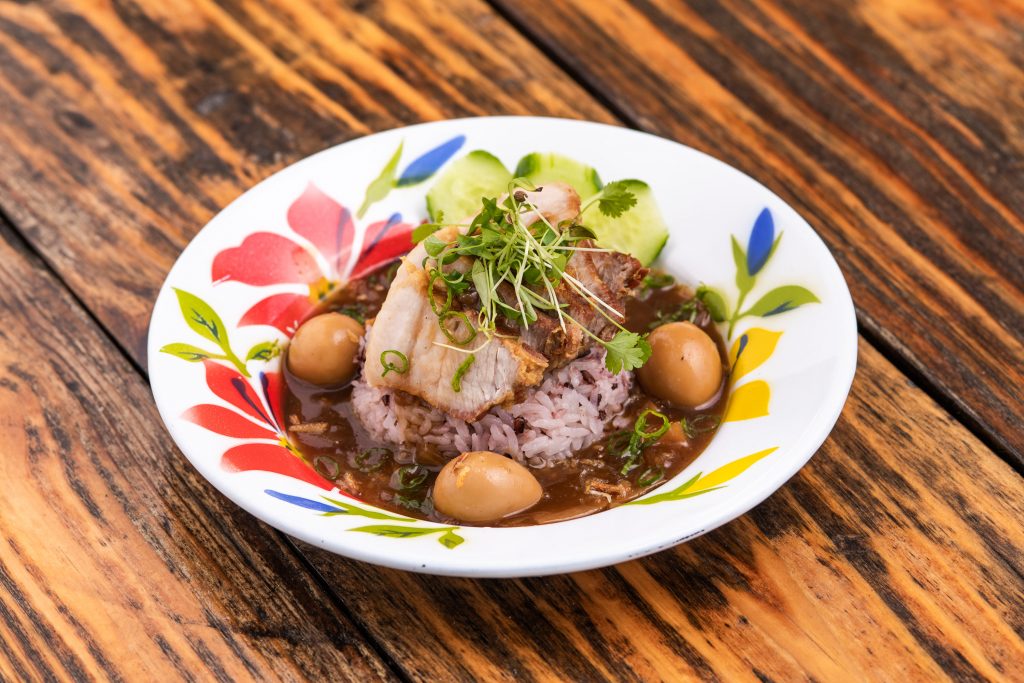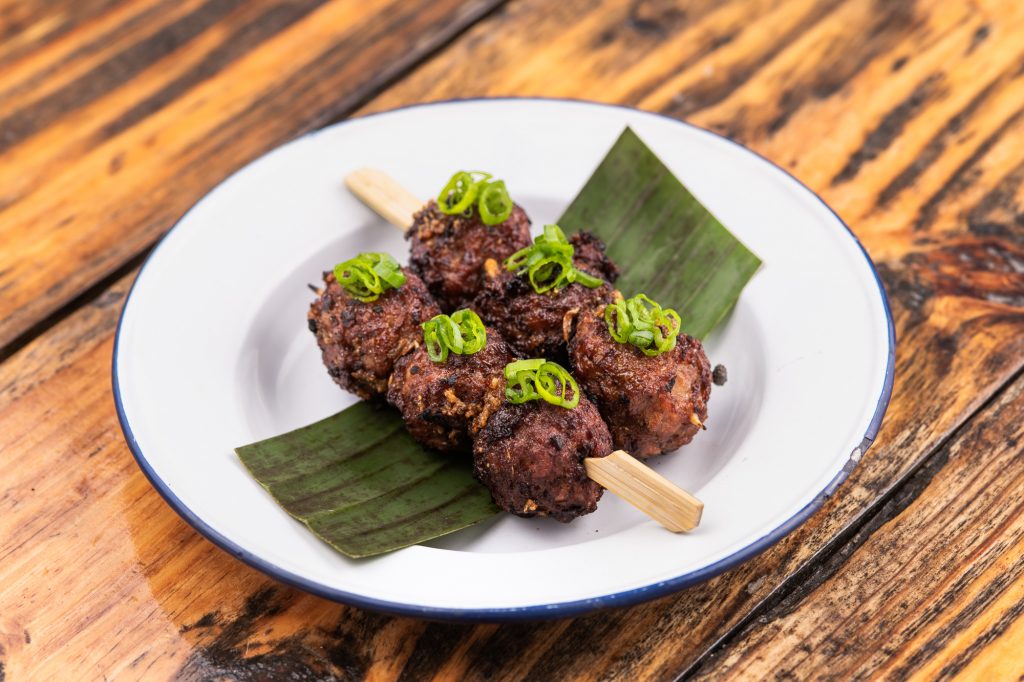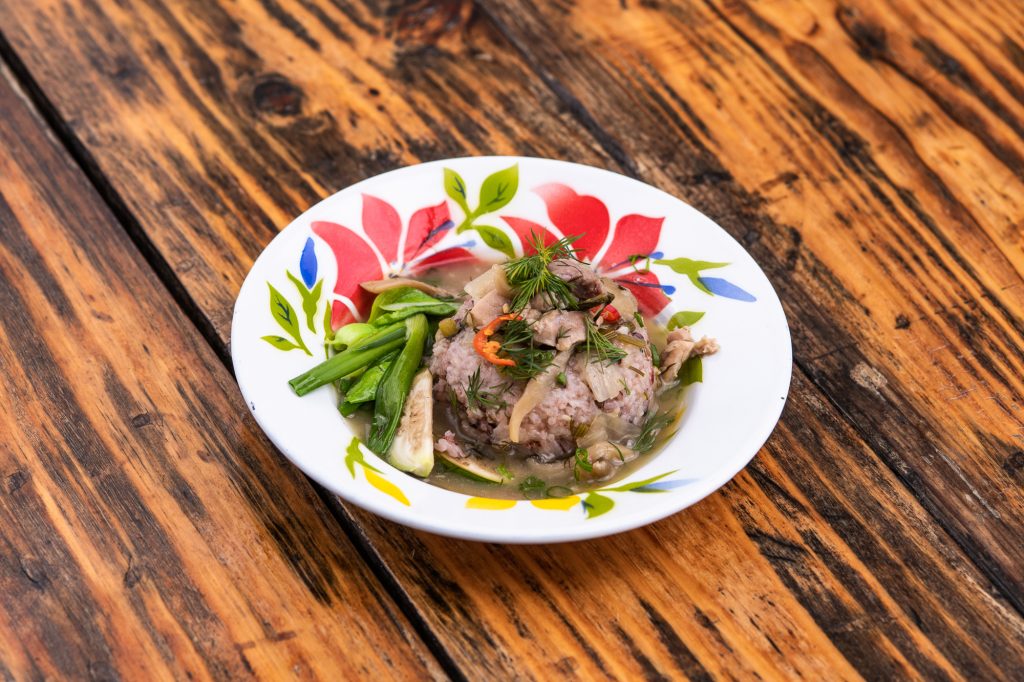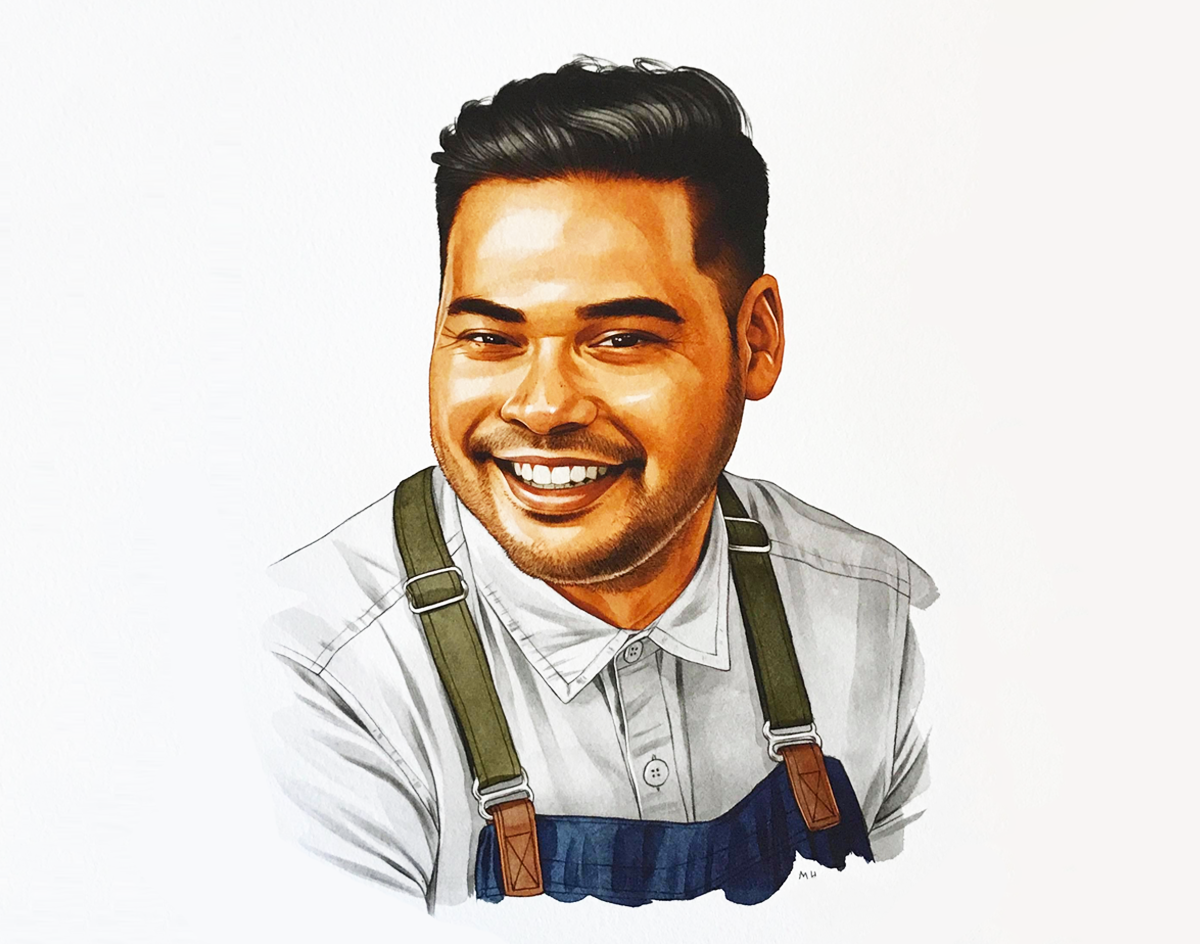We Chatted With Owner And Chef Donny Sirisavath of Khao Noodle Shop On The New Khao Gang Concept And The Importance Of Preserving Legacy.
Donny Sirisavath is shaking some shit up and keeping it real.
The critically acclaimed chef and owner of Khao Noodle Shop is changing up his game and transforming Khao Noodle Shop into Khao Gang, a Laotion comfort meal concept made for the new age of home delivery and take-out. For the man whose previous venture was named among Dallas’ tops when Bon Appetit named Dallas its “restaurant city of the year” in 2019, this is big. It means a completely new menu.
SEE ALSO: QUARANTINE Q&A: DONNY SIRISAVATH OF KHAO NOODLE SHOP.
Rest assured, as with its predecessor, Khao Gang will remain unapologetically Laotion, staying true to Sirisavath’s culture and his drive to keep family legacies alive. Times may change but some things just never will.
Or will they?
We sat down with Sirisavath to find out for sure.
What’s with the name change to Khao Gang?
You’re familiar with “khao”, right? In the Lao language, “khao” means rice and food. The “gang” means soups or curry. So it serves two purposes: “Khao gang” means rice and curry — and then, of course, we’re renegades and we’re the Khao Gang. [Laughs.]
I have to ask: What is your favorite dish on the new menu?
I tell this to everybody. All the memories that I have versus what Khao Gang is… you can’t really… well, I have favorites, but the dishes are like my kids! [Laughs.] Each was with me when I made mistakes. Each one takes me back to a memory in my life. They’re all my favorites.
Each dish takes me back to my childhood, my teens, my adulthood and my travels. The gang aw gai was actually my mom’s favorite dish to make for us as a child growing up. That one has sentimental value to me; it’s got chicken thighs, lemongrass, ginger, eggplant and padauk — [it’s] very, very herbaceous, but its a lighter stew. It’s very refreshing. So, I made an interpretation of what my mom would make me — [but] my way.

Khao Thom Khem Moo.
All the dishes are comforting, and that’s the idea behind Khao Gang. Because, throughout the pandemic, people want to eat something that’s comforting — something with substance and portions. I thought, “Why not make Laotion comfort food that fits the modern takeout model?”
Well, also, people in Texas ought to know more about Laotion culture and their dishes! I feel like Laos always gets overlooked.
We always do, we always do. [Laughs.] We still do! What are you talking about? [Laughs.] But it’s like famous actors or singers. They start off struggling in round one and then, over time, they start coming up and coming up, and they become the famous actor and singer of their time. Every country has its own waves — y’know, a back and forth. We’re gonna get that Top 10 track soon! [Laughs.]
Do you feel Asian cuisine is finally getting the recognition it deserves?
Well, everyone has their own mindsets on what Asian culture is. Take, for example, the Westernization of Chinese food. Which, there’s nothing wrong about it — I grew up on that shit! But that’s the thing: Some people are a little closed-minded and don’t want to explore beyond that. That’s the tough part — the lack of education on the culture.
But I think for [our generation] in the Asian-American community, we learned by what our parents did, which was: fly by wire; don’t do anything; don’t say anything bad; don’t mention anything if things go wrong; just do your job; don’t speak up. So that’s one reason why we never had a voice as far as Asian culture. But now with the whole crisis of the pandemic and movements like Black Lives Matter, a lot of Asians are actually now starting to speak out. We’re different. It’s like, “Yeah, motherfuckers! We’re here too!” It’s solidarity.
I’ve been here for 40 years. I’ve always been vocal about myself and my culture. I want to do so much. I mean, then its the next 10 people to speak out, or the next 20 people to do it. I think we just have to band together and make sure that we create that narrative for our culture — so people understand what Vietnamese culture is, what Laotion culture is, Filipinos.
Everyone loves Japanese and Korean — but Laos? Cambodian? People are still like, “Where are y’all from?” It’s like that King of The Hill episode where Khan says he’s from Laos, and they’re like, “So, are you Chinese or Japanese?” [Laughs.]

Chicken Thigh Meatball.
How was it growing up in Texas as a Laotion?
I grew up in San Antonio, and I look Mexican. There were times when the friends I hung out with didn’t know I was Asian. They’d be like, “What part of Mexico are you from?” and I’d be like, “Well, my parents are from Laos.” And they’re like, “What part of Mexico is that?” And I’d be like, “Motherfucker, it’s not part of Mexico, man!” [Laughs.]
So, I did have an identity crisis growing up. It was more about educating people on where I was from and what my nationality was. But I got tired of it — and I would say, “Oh, yeah, I’m Mexican.” Eventually, I went to a friend’s house, and his mom made us a [staple Mexican] dish that was so good. I was like, “Mrs. Hernandez, what dish was that? I’ve never had this dish before.” She was like, “What do you mean you haven’t had it before? Your parents don’t cook that for you?” I said, “No, they don’t make that [dish] at home for me.” She said, “So… what part of Mexico are you from?” [Laughs.]
I’m guessing you’re what they’d call “a bad Asian”?
Oh yeah, for sure. So, I didn’t have a “tiger mom.” I had a “tiger dad,” who was basically like, “Well, if you’re not going to be an engineer or go to college, you need to move out.” And I was like, “Well, I’m not going to school to become a doctor or engineer, so I’m leaving now!”
Is that how you got into cooking?
So, I was born in Amarillo, Texas. I moved from Amarillo to San Antonio when I was 9 because my mom had a chance to open a restaurant. I was there from the time I was nine years old to when I was 21. So, yeah, I tell people I’ve been in the industry for a while! [Laughs.] I grew up in the restaurant. That was my childhood, all through my teens. I’d just worked in my mom’s restaurant. I learned so much about the restaurant, from front to back of house, just seeing my mom struggle.
It feels like some things just make sense, right? You grew up uniquely Laotion in Texas, always around your mom, and in the food world, with the desire to educate people on what Laos is. To me, it makes absolute sense that you wouldn’t become a doctor or engineer!
It does! It’s part of what my mom instilled before she passed away. We spent a lot of time cooking together and talking. She’d turn around and say, “OK, so, what are you going to do when I die and pass on?” And I’d be like, “First of all, let’s not talk about you dying or passing on!” But, y’know, it was real talk. She wanted to know what I was going to do. I’d say, “I’m still trying to find myself, Mom. I’m just working.”
I’m 40 now, but I probably had 30 different jobs in my lifetime. [Laughs.] I dropped out of high school. I got my GED. I went to college for a little bit and decided school wasn’t for me. Then I went around bouncing around from job to job, trying to find something I liked.
Then my mom got sick, and she’d just tell me, “Well, whatever you do, I don’t want you to continue suffering and bouncing around from job to job, trying to collect a check. I want you to be able to be happy about your life — not being happy over materialistic things, [but with] real, true purpose and meaning in your life and what you do.”

Gang Aw Gai.
How did your mother’s passing change you?
What she said carried on until she passed away, and I was like, “Fuck, man. I do need to do something with my life.” That’s when I started cooking again — [at first] just for friends and family. Then that led me to cooking interpretations of dishes that my mom would make. I’d invite friends to eat, and they would invite theirs — like, what the fuck is going on? Then they’d say, “You should do a pop-up like they do in Los Angeles and New York!” At that time, pop-ups weren’t really a thing in Dallas. But eventually, that turned into brick-and-mortar.
Wow.
It is about the food. It is about the story. But, at the end of the day, that’s mourning our culture and preserving our legacies that our grandparents or our parents came here to become, y’know? They couldn’t become a doctor, or they didn’t become a lawyer or engineer. That’s what they want for us. They just want the best from us. But I think our parents just want us to be happy at the end of the day. If we’re not happy being a doctor — even if we’re making more money — it’s just going to feel like, “Fuck, I’m just working to pay my bills.”
You can’t force what’s already within you.
Right. If we’re destined for something, it’ll happen — or we create our own destiny. Like, my mom is a cook and was a cook, and then all of a sudden I became one, y’know? I think things just happen like that. For me, yes, it’s stressful. But it’s my business, and I own it. I want to close it today? I’ll close it today. The thing is, everything falls on me. I can’t get up in the morning and be like, “Hey, boss. Can I come in later? Like, I am the boss. I make my own business decisions. But then, also, I want to create an environment where my staff feels comfortable telling me things. If you’re going to be hungover, tell me you’re hungover. I’d rather you be honest and safe.
I feel like you were very rebellious as a kid. That’s something a once-rebel-turned-boss would say.
Oh, yeah. If I was a kid, my nose would be fucking stretching all time. [Laughs.] That’s how I grew up — just lying. And I was so bad at it. I started skipping school at a young age — like fourth grade. I guess, for me, I was uprooted from what I had known all my life, which was from when I was a baby to nine years old. So, in a way, I kind of feel like I couldn’t fit into the community that I recently moved into. It was hard to adjust to, so that was my way of dealing with it.
OK, what kind of shit were you getting into in fourth grade?!
So, my parents would leave to go to the restaurant, but they wouldn’t leave until about nine o’clock in the morning. The school bus would come by at seven o’clock. So, I’d do my thing: I’d get my backpack, eat my breakfast, go outside and walk to the bus stop — and then I’d hide. There was a tree next to the house, and I’d climb the tree and sit on the roof where nobody could see me, then I’d wait for them to leave and I’d crawl back in my window. [Laughs.] Eventually, I got caught!
One last question, Donny: If your mom could see you right now, do you think she’d be proud of you?
I think, for her, yeah: I think she would be proud. But she’d also probably be like, “Why these dishes? Why are you telling them to do this way and this way?” That’s why me and my mom could never work together! [Laughs.] In her way, she’s a perfectionist. I can never beat her at her own game. That’s part of the reason why I — for me, I never want to do something exactly like her. And that’s why I never kicked any recipes from her. I just used what I remember her doing. People ask me, “You never wrote down the recipes?” I’m like, “No, it’s all in my head. They’re all memories. I cooked with her. I know my mom would’ve used this.”
Khao Gang photos by David Loi.
Commissioned portrait by Michael Hoeweler based on a photo by Kathy Tran.

